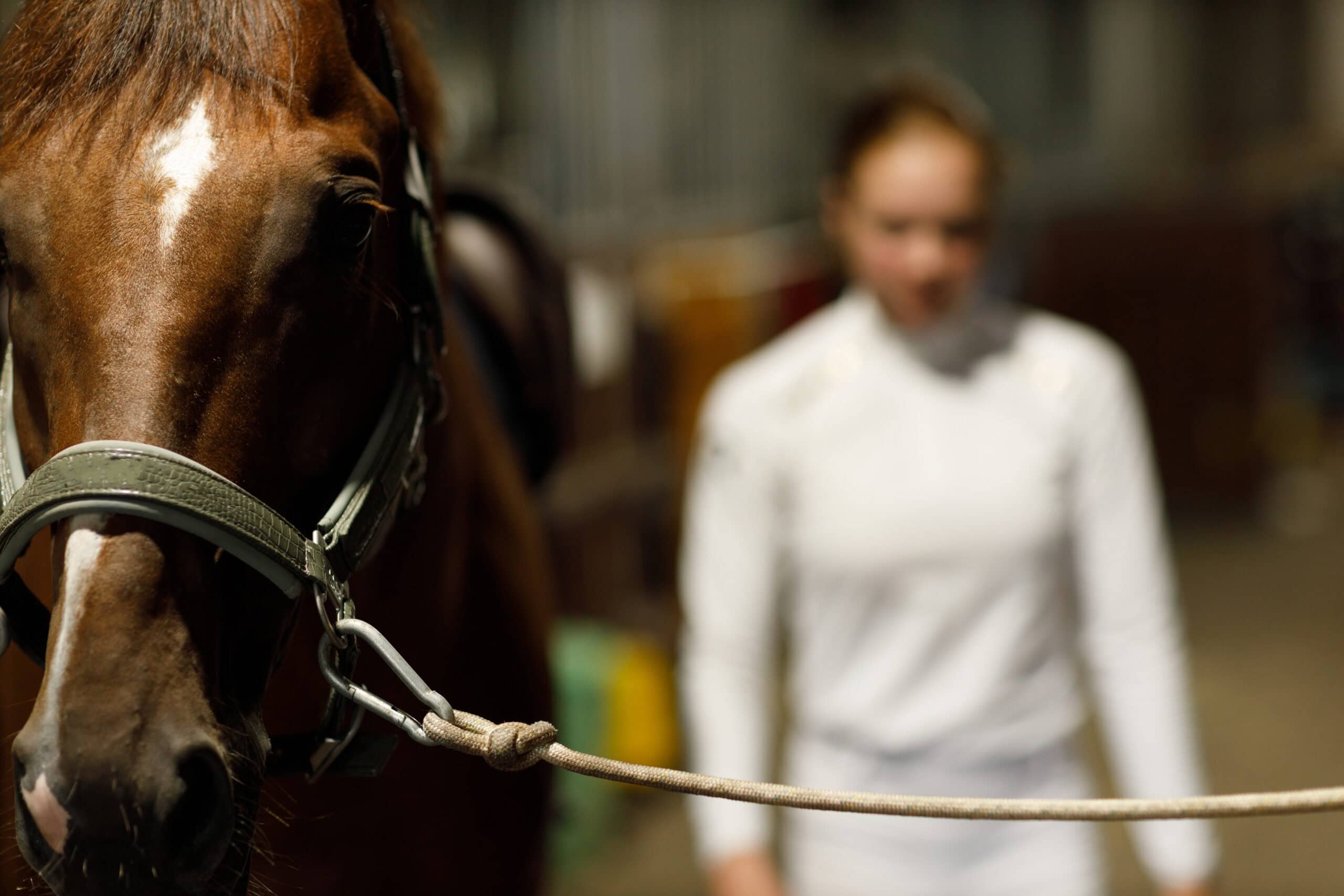Horse Selling FAQ
Equine Legal Solutions offers answers questions horse sellers frequently ask.


By Rachel Kosmal McCart
The following are common questions we hear about selling horses, along with our answers.
Q: I’m writing an ad for my horse. Is it OK to emphasize his good points and not mention his shortcomings?
A: In a word, yes. For example, it’s perfectly appropriate to talk about your Palomino’s winning western pleasure record without mentioning in the ad that he’s a holy terror on the ground. However, your ad must be truthful (i.e., you can’t say he’s 16 hands if you know he’s really only 15.3 with shoes on), and there might be other situations in which you must bring up your horse’s bad manners. See Your Legal Duties as a Seller.
If your horse has any bad habits, health issues or other problems that affect his value, ELS recommends documenting those issues in the sale contract.
Q: What if a buyer asks me about one of my horse’s shortcomings. How much information do I have to give them?
A: If the buyer asks, you must disclose all you know about that particular topic. For example, if the buyer asks you how your horse is to clip, and your horse stands quietly but only if you twitch him first, you must tell the buyer the whole truth. See Your Legal Duties as a Seller. If your horse has any bad habits, health issues or other problems that affect his value, ELS recommends documenting those issues in the sale contract.
Q: What if a buyer wants my horse, but wants to have their vet check him first. Do I have to agree?
A: As the seller, you can dictate how you sell your horse, and if you’d rather sell your horse “as is,” that’s your choice to make. Remember, though, that the horse community is small, and if you refuse to consent to a vet check, rumors might crop up that something wrong with your horse. On the other hand, if the vet check turns up a condition you were previously unaware of, you might be required to disclose that condition to other buyers under certain circumstances. See Your Legal Duties as a Seller. ELS recommends you document your sale agreement subject to vet check in writing, and we offer downloadable forms.
Q: How long should I allow the buyer for a vet check?
A: As long as you feel is appropriate. If you have several buyers interested in your horse and your agreement with the buyer will not permit you to keep the buyer’s deposit if your horse doesn’t pass a vet check, you might want to give the buyer only a few days to schedule the vet check. If it’s the middle of winter and you haven’t had anyone else seriously interested in your horse, perhaps you can allow a week or two for the buyer to get her vet’s OK. Whatever you decide, remember to put your agreement with the buyer in writing. ELS offers downloadable sale agreements.
Q: A buyer wants to buy my horse but wants to try him out for a while first. What should I do to protect myself and my horse?
A: If at all possible, make sure the horse stays on your property and that you supervise the buyer’s interactions with your horse. Limit the trial period to a reasonable, fixed amount of time. Most knowledgeable, motivated buyers will know within a week whether a horse is right for them. Get a deposit and put the entire sale agreement in writing, including the circumstances where you will get to keep the deposit and who will be responsible if anyone is injured during the trial period. ELS offers downloadable prepurchase trial agreements.
Q: The buyer will be sending a friend with a trailer over to pick up the horse. Is there anything I should do to protect myself?
A: Yes, make sure you get a receipt from the person picking up the horse, and if the buyer will not be present, make sure you know exactly who will be picking up the horse and when.
Q: The buyer is my friend, so I feel uncomfortable asking her to sign a bunch of papers. What should I do?
A: Part of the purpose of legal documents is to avoid misunderstandings. You can explain to your friend that because her friendship is important to you, you want to be especially careful that the sale goes smoothly and you are both in complete agreement on the terms.
Q: The buyer doesn’t have enough cash to buy my horse and wants to pay me in installments. Should I agree to this?
A. See Installment Sales.
Q: I’m considering having my trainer sell my horse. What should I do to protect myself and my horse?
A: Like any other business transaction, you should have a written agreement with your trainer that spells out all the terms and conditions of the sale. For example, what will happen if the horse doesn’t sell within a certain period? Who will pay the horse’s board while he is with the trainer? What will the trainer receive if he sells your horse? How much discretion do you want to give your trainer in selling your horse (i.e., do you want to retain the right to approve the buyer or negotiate the purchase price)? The answers to these and other questions should be documented in a sale agreement.
Share this article

Written by: Rachel Kosmal McCart
Rachel Kosmal McCart is a lifelong horsewoman and the founder of Equine Legal Solutions, PC, an equine law firm based in the Portland, Oregon area. Rachel is a member of the New York, California, Oregon and Washington State bars and is admitted to practice before the U.S. District Court for the District of Oregon and the U.S. District Court for the Central District of California. Rachel currently competes in three-day eventing.








